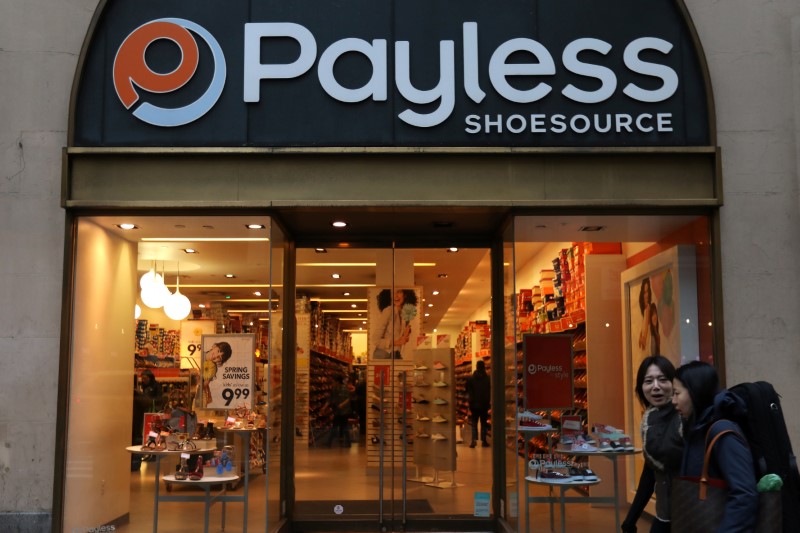By Jessica DiNapoli and Tracy Rucinski
(Reuters) - Payless ShoeSource Inc settled a dispute with its creditors on Tuesday, after creditors alleged that the company's private equity owners inappropriately siphoned off $400 million before the U.S. retailer's bankruptcy, people familiar with the matter said.
The case has been monitored closely by other private equity-owned companies and their creditors, because it could spark more claims against bankrupt companies over so-called dividend recapitalizations, which involve a company borrowing money so it can pay the buyout firms which own it a special dividend.
Payless' creditors had said in court filings that private equity firms Golden Gate Capital and Blum Capital, which together hold 98.5 percent of the company and control its board, received more than $400 million in dividends in recent years.
This added to the company's debt pile. Payless filed for bankruptcy in April with $838 million of debt, joining a long list of retailers struggling in a sharp downturn in the sector.
Under the settlement, the shoe chain's unsecured creditors, largely its landlords and vendors, will receive $25 million in cash in the bankruptcy reorganization, the people said, asking not to be identified because the deal is not yet public.
The payout amounts to a recovery of between 17 and 21 cents on the dollar for the claims of the creditors, a major improvement from the pennies they expected when the case began, one of the people said.
The shoe seller and its owners did not to admit to any wrongdoing as part of the settlement, the people said. The deal will net an additional $7.3 million for another pool of creditors, the people said.
Golden Gate and Payless declined to comment. Blum did not immediately return a request for comment.
The agreement sets Payless on track to exit bankruptcy as soon as August, according to the people and court papers, avoiding winding down its business like many of its bankrupt peers.
Payless said last month that independent board member Charles Cremens was conducting his own investigation of possible claims against the private equity firms. The company opposed a separate investigation by the creditors, saying it could hinder attempts to bring the company out of bankruptcy.

As part of its reorganization plan, Payless has said it must renegotiate 3,600 U.S. store leases as well as joint venture partnerships in Latin America, a region it has described as a cornerstone for future growth.